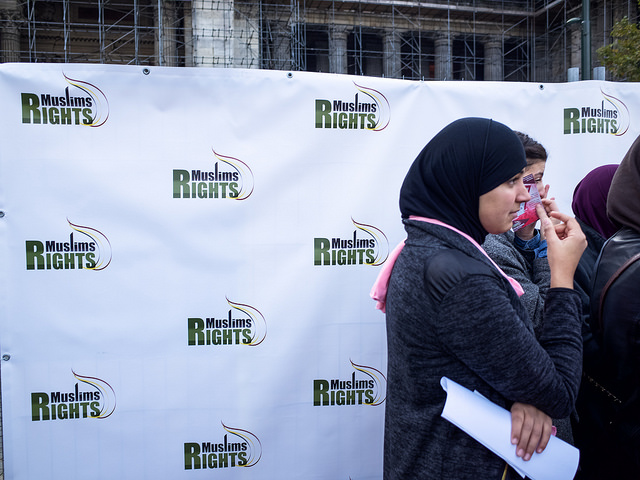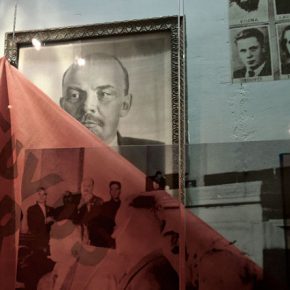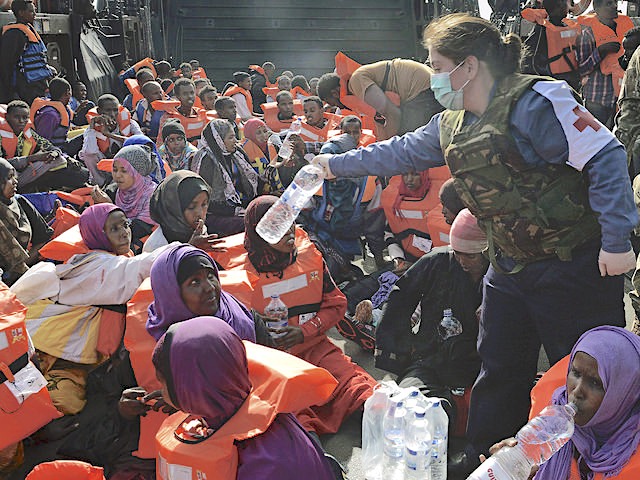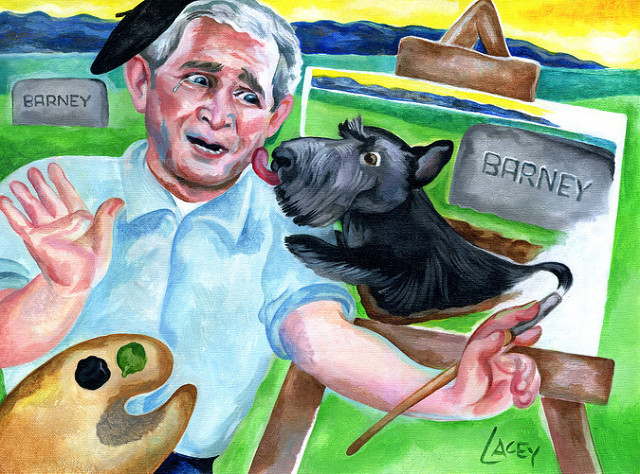European policy-makers must address cultural and political anxieties about Islam and refugees head on, rather than ceding the public debate to the far right and their self-defeating policies, argues Behzad Yaghmaian.
Public anxiety about refugees and migrants in Europe and the global north has been increasingly shaped by a fear of Muslims and Islam.
Across Europe, the far right has succeeded in gaining support by evoking the image of a Muslim invasion through refugees and migrants. Images of cultural and political invasion parallel and reinforce images of an economic invasion – migrants and refugees flooding jobs markets and abusing the welfare system, which I discussed in an earlier article.
For many people grappling with economic malaise in Europe, the Muslim intruder embodies all that has gone wrong in society – destroying cultural homogeneity, weakening national security, stealing jobs and appropriating scarce public resources. This turns migration policy into a patriotic act of defending the nation against the enemy.
It is critical that Europe addresses these fears head on, and with clarity and honesty, to halt the shrinking political space for refugee protection.
Muslim Exceptionalism
Most discussion of Islam and refugees is dominated by two extremes. The far right expects Muslim refugees and migrants to be superhuman, demanding that they abandon all layers of their culture to assimilate into Europe.
Meanwhile, liberals have largely shied away from addressing Muslim or Islam-related issues in Europe, leaving the front open for misinformation, abuse of facts and manipulation by the far right. This enabled the far right to promote discriminatory laws that could widen social fissures between Muslims and non-Muslims in Europe.
Last summer’s “burkini crisis” in France is one example. Amid national hysteria, some 30 municipalities banned women from appearing on beaches covered in full-body swimwear.
Wearing burkinis is far from common on French beaches. Many people around the world condemned the ban. However most French people backed the ban, according to a poll by conservative paper Le Figaro. Even Manuel Valls, the socialist prime minister at the time, expressed support for the ban, which was eventually overturned by French courts.
The burkini ban was a perfect opportunity for liberals to engage the right on issues of secularism, Muslim women’s autonomy, cultural diversity and what is and is not “French.” It was a chance for a clear-headed and honest conversation on acceptable norms and policy.
But French liberals failed to tackle any of these subjects head on, leaving the far right once again at the helm of public discourse about Muslims in Europe.
Addressing Political Anxiety About ‘Muslim Terrorists’
While research shows most jihadists in Europe today are young second-generation immigrants, most Europeans fear the arrival of new refugees will result in more acts of terrorism.
To help ease political anxiety over Muslim refugees, we need better policies to tackle radicalization and recruitment to jihadist causes.
The diversity and changing profile of jihadists make this a highly complex task. Yet recent research suggests around half of the jihadists involved in terrorism in France and Germany have a history of crime. In France, the journey of many jihadi terrorists starts with alienation and anger caused by joblessness and discrimination, followed by petty crime, incarceration, more crime and more prison.
We need alternatives to moving people in and out of prison to break this vicious cycle. Economic policies that create jobs are one way to provide economic security for those at risk.
We must also end geographic warehousing of Muslims in and around urban areas. For example, the ghettoization of Arabic-speaking Muslims in the suburbs in France, or Muslims of Asian origin in some urban clusters in England, only increases alienation.
Jobs, economic security and geographic integration will not address all the causes of radicalization, but they could help remove some people from the deadly trajectory of a life on the margins.
Addressing Cultural Anxiety About ‘Muslim Intruders’
Coupled with political anxiety over refugees is Europe’s growing cultural anxiety about Muslims and their practices, amid fears of losing established traditions and social norms.
This anxiety hurts refugees – Muslims and non-Muslims – as well as larger society. It empowers the far right, hurts political will for refugee protection and can embolden conservative forces within the refugee and Muslim community.
Policy-makers cannot mandate a change in public feelings. They can enforce policies against hate speech of all kinds, discriminatory practices by private and public institutions and support efforts to build trust between communities.
Conversely, policy-makers who pander to cultural anxieties with wrongheaded policies can end up widening cultural and economic divides. The European obsession with the hijab is one example of such self-defeating policies.
For example in a recent ruling, the E.U. Court of Justice said that a workplace ban on wearing religious symbols, including the Islamic headscarf, need not constitute direct discrimination as long as ban is based on internal company rules requiring all employees to “dress neutrally.” While supporters of the ruling claim it does not single out the hijab, in practice the ban will discriminate against women who cover their hair.
In France, where I am currently conducting research with Muslim refugees, wearing a headscarf is already banned in public schools and public service jobs. While narrow, the chance of finding gainful employment in the private sector was an important way out for Muslim women trapped in the whirlpool of France’s large suburban ghettos. The ban could further marginalize headscarf-wearing Muslim women, forcing them into traditional gender roles at home, and further disempowering them in relation to male members of their households.
Removing these women from the workplace will increase their families’ dependence on the welfare state. This could help fuel the political right’s exploitation of economic anxieties over refugees, by allowing them to present Muslim families as a drain on badly needed public resources and social services.
Cultures evolve over time. Social practices change with sustained contact and understanding. The age of globalization has changed lifestyles, cultural practices and social norms across the world. The increase of Muslim cultural practices in Europe is just one aspect of this.
We are long overdue an open and clear-headed public discussion of what this means for European policy-making. We need clear criteria to judge which practices are acceptable and which are not, as well as a sober assessment of the impact of our policy choices on cultural and economic divides.
This article originally appeared on Refugees Deeply, and you can find the original here. For important news about displacement and forced migration, you can sign up to the Refugees Deeply email list. Photograph courtesy of Joel Schalit.





